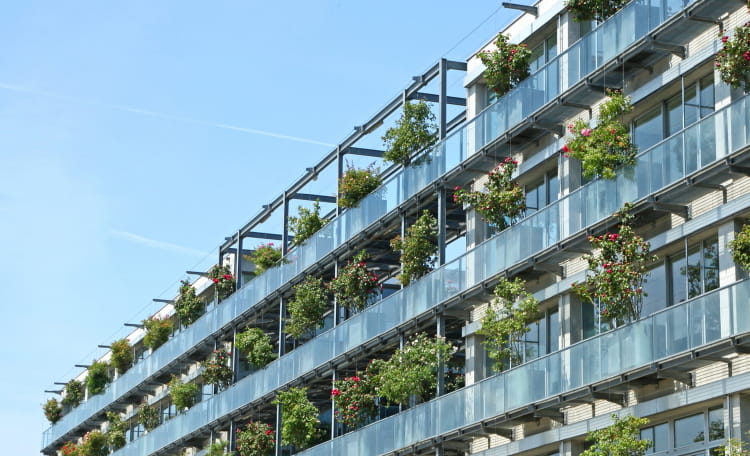The Indian real estate, contrary to the global mood, finds itself in a time which is exciting, dynamic, and full of possibilities. While the global recessionary climate is exerting some influence on the macroeconomic factors, overall, the economy is in a good spot with fiscal 2022-23 recording a robust 7.2% growth - the highest among major economies. This provides a huge impetus to the real estate sector to explore possibilities and even change gears from linear to transformative growth. We are indeed standing at an at interesting juncture and industry is undergoing a transition, like never before.
In the office segment, owing to the global uncertainty, we see foreign MNCs going slower on large deals in the immediate short term. We are witnessing the rise of local demand and a significant rise in smaller deals (less than 50,000 SF), that is helping the office segment to maintain demand-supply balance. Leading developers in India have seen share of smaller deals dominate total leasing volumes in recent quarters. Some developers see this as a boost to speculative demand (as opposed to built-to-suit) and encourage faster churns that helps in mark-to-market of rentals. The ongoing evolution of the office market has translated into a sharp demand spike for managed offices, both from medium and large occupiers. This is a trend that will continue over the next several years as occupiers look for flexibility, cost optimization and greater focus on core businesses.
The pandemic acted as a catalyst to nudge occupier preferences towards higher quality assets. Today, ESG and well-being have become a key evaluation criterion and hence building grades and green certifications are as integral to the negotiations as the commercial terms. Similar trend is seen across Asia-Pacific, and this could eventually give rise to the risk of obsolescence in swathes of office assets across global cities. Many matured markets are staring at large chunks of office inventory being at risk of obsolescence in the foreseeable future. Cushman & Wakefield has highlighted some of these trends for Asia Pacific in a recently released research report titled “Rethinking the office sector: optimising your asset for a new era”.
Fortunately, in India, the top cities are found to be far more youthful compared to its Asia-Pacific peers, largely owing to lower age of buildings and rising institutionalisation of assets. Nevertheless, Indian landlords need to actively monitor their portfolio from a building lifecycle management perspective, to identify and eradicate obsolescence at an early stage. Our teams from project management and facility management are actively engaged with many of you, to ensure sustained relevance and value of the asset.
It has been exciting to witness the scale of reforms being undertaken and two such initiatives from recent months are worth mentioning. First, market regulator SEBI, through a consultation paper, has for the first time toyed with the idea of regulating fractional ownership of real estate assets. This could go a long way in opening-up yet another REIT-like framework where ownership of quality assets could be sought-after by individual investors. Secondly, the decision made by India’s National Stock Exchange (NSE) to include REITs and InvITs as part of leading indices such as the NIFTY 500, NIFTY Midcap 150, and NIFTY Smallcap 25 is a welcome move indeed. These will further encourage participation from small investors in India’s real estate growth story. Amidst a strong emergence of the warehousing, industrial and data centers sub-segments within India, and the faster institutionalisation of these assets seen in recent times, the above policy proposition will only help the cause of real estate across multiple asset classes. The nation’s first retail REIT (Nexus Select Trust) got listed on bourses in May, and it received an overwhelming response from the retail and institutional investors, reinstating further confidence in the instrument.
At Cushman & Wakefield, India, too we have had an exciting run in the recent months. We celebrated June as the Pride Month across our offices, and among other meaningful initiatives, we had Parmesh Shahani, an award-winning author and LGBTQIA+ inclusion consultant, in our Mumbai office speaking on #ActiveAllyship. We were also judged a Great Place to Work and the best in our industry for the 6th year in a row and secured two Five Star Awards at the annual Asia Pacific Property Awards again - Best Property Agency/Consultancy and Best Real Estate Agency Single Office (Chennai).
It has been a rewarding and fulfilling first half for us and hope the same for you. And here’s wishing that rest of 2023 holds the growth momentum, and the Indian economy continues to shine in these uncertain times.
2023 Mid-year review on the India Real Estate
Anshul Jain • 10/07/2023
RELATED INSIGHTS
Research
Industrial Outdoor Storage (IOS) has emerged as a key industrial subsector in recent years, gaining mainstream investor attention in many global markets.
Luke Crawford • 02/05/2025

Insights
Sustainability – Purpose-Led Growth in Delhi NCR’s Built Environment
India is committed to reducing its carbon intensity by 45% by 2030 compared to 2005 levels, and a pledge to bring down projected CO2 emissions by a billion tonnes by 2030 requires active contribution from the Indian real estate sector too.

Insights
The Rise of Data Centres in India: A State-Wise Comparison
Upcoming regions are improving the ability of firms in India to offer state-of-the-art software infrastructure, platform-as-a-service, file sharing, data storage services, big data analytics, data governance, and cyber security.
